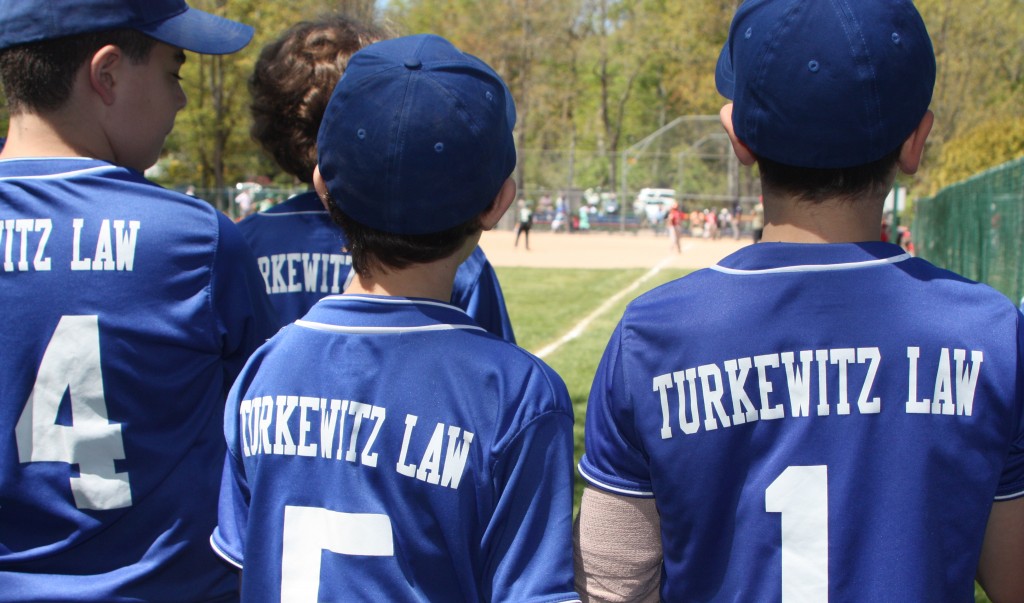Since Stein grew up outside the U.S. he brings a perspective different than most to the concepts of freedom and security. It is reprinted here with his permission:
——————————————
 It was a clear, crisp, beautiful spring day. 7:50 a.m. on a Sunday morning and New York City was just beginning to wake and stretch. The drive into Manhattan from New Rochelle was quick and uneventful, and I parked in my usual parking lot on 66th Street just a short block walk from Central Park.
It was a clear, crisp, beautiful spring day. 7:50 a.m. on a Sunday morning and New York City was just beginning to wake and stretch. The drive into Manhattan from New Rochelle was quick and uneventful, and I parked in my usual parking lot on 66th Street just a short block walk from Central Park.
Everything was familiar and normal. The temperature was in the low 50’s and I decided there was no need to check a bag for the race. This decision was made in part due to the pleasant temperature as well as a warning from New York road Runners that new security measures had been put in place since 4/15/2013, the Boston Marathon.
As I headed up the parking lot ramp onto the street, I saw the normal flurry of activity on the streets. Runners with their race bibs pinned to their shirts were scurrying towards the park. Parents were leisurely pushing strollers towards the park. In fact, everyone I saw on the streets seemed to be gravitating towards the park on this sun filled morning. A perfectly normal spring day in New York City.
I entered the park on Central Park West and 67th Street, by Tavern on the Green. This is when I first encountered the New Normal. A Security Checkpoint! No entry without being asked to show contents of your bag, including the contents of my Spi Running Belt strapped around my waste.
Mixed emotions. I was happy that there were new security measures in place to keep us all safe. Then I thought; “will I ever be able to walk into the Park without being subjected to a security search? Is this New Normal just applicable to events in the Park, or are these permanent measures?”
A few hundred yards into the park, I saw a young guy looking inside his backpack on a park bench. Did he go through security screening? Should I tell someone I saw a backpack? What did this guy look like? Should I remember his face? What is the new normal? What are the rules? Why is a perfectly normal morning being spoiled by these abnormal thoughts?
 As I made my way deeper into the park, in the distance I saw the normal long line of Porta Potties. Good thing they are still at the race. Something’s normal. But as I got closer, I saw that the New Normal included a checkpoint to get into the Porta Potty Area. A big Yellow sign read Security Screening Area.
As I made my way deeper into the park, in the distance I saw the normal long line of Porta Potties. Good thing they are still at the race. Something’s normal. But as I got closer, I saw that the New Normal included a checkpoint to get into the Porta Potty Area. A big Yellow sign read Security Screening Area.
I looked left, and I saw a NYC Police security crane with a security booth lofted 40 – 50 feet into the air with cameras pointed in every direction. Another Big yellow security signs read. Attention: Due to Enhanced Security Measures, Baggage Will Only Be Accepted In The Provided Clear Bags. Another New Normal. The $25 New Balance red backpack I purchased last summer specifically for race-day will now lie unused in my closet at home.
This was my first organized race since April 15th, and the National Anthem took on a deeper, more meaningful meaning than ever before, as I thought about those who lost their lives and those who were badly injured in Boston. I thought about the land of the free and the home of the brave, and how thankful I was to be living in the greatest nation in the world. The word Free stuck around in my mind for quite some time. Are we becoming prisoners in our own free land?
The race itself was as normal as it ever was. Crowded in the beginning and then it opened up after the first half mile. After the race I walked over to the post-race festival, set up to support lung cancer research and awareness through the Thomas G. Labrecque Foundation. In its 10thyear, the event was founded in honor of former Chase Manhattan Bank chairman and CEO Thomas G. Labrecque, who died of lung cancer at age 62. Labrecque was the model of good health and a non-smoker all his life.
Another security checkpoint to get into the festival area on Ramsey Field!
As I made my way back to the parking lot on West 66th street, my thoughts turned back to the New Normal. Is this just a knee-jerk reaction? Are the organizers and security professionals worried about copy cats? Was this a reaction to an isolated incident in Boston, or should we be expecting these events on a more frequent basis? Will security measures be eased any time soon?
Whatever the answer, there is a New Normal. Just like 9/11 changed forever the way we fly, the way we travel, and the way we enter buildings, the Boston Bombings have changed the way we gather and congregate for our organized races. We say we will not be defeated, we will not be terrorized. But they have already changed what is normal, and enforced a new, less free normal existence upon us. What is the right balance between being prudent, protecting a crowd from a repeat incident v.s. being free and not thinking about such threats all the time?
I grew up in a country where we left our front doors open when I was a young kid. As the country became more and more riddled with crime, most houses installed burglar alarms. Soon alarms were supplemented with burglar bars on every window, then a security gate on each exterior door, and in no time high fences and walls surrounded most residential properties, then electrified fences were installed, and each neighborhood had a private security company on call to protect you as you arrived home and walked you to your front door.
Ten years went by and we realized we were living in our own fortresses. Free in our own self-created prisons. With each security feature added, at first it was uncomfortable, but we soon got used to it and it was normal. But when one looked back at the open doors with no gates and no alarms to the prison we had created for ourselves, it was an enormous change.
My point – although I do not have a solution, lets be prudent about what security measures we put in place, let’s be safe, let’s rely on the security professionals and law enforcement to protect us, but let’s be careful not to imprison ourselves in our own free country.
 We interrupt this blog to bring you a special announcement on the latest and greatest in law firm marketing.
We interrupt this blog to bring you a special announcement on the latest and greatest in law firm marketing. And, by the way, since I know you were wondering, the kid on the mound to the left is the same one previously featured with his skateboard.
And, by the way, since I know you were wondering, the kid on the mound to the left is the same one previously featured with his skateboard.




